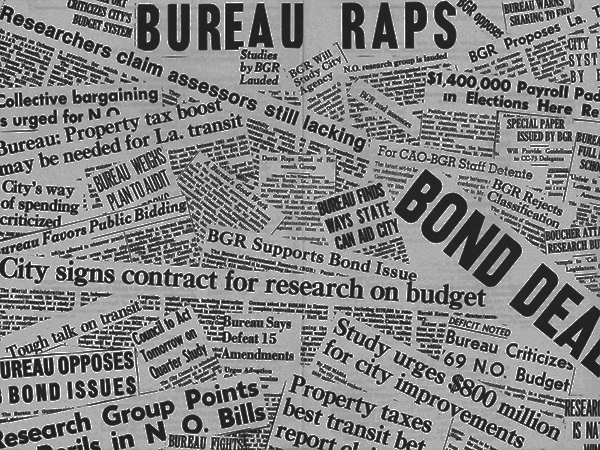
What kind of ‘change’ agendas might New Orleans mayoral candidates tout?
By Stephanie Grace
Source: The Advocate
April 3, 2017
In HBO’s biting political satire “Veep,” the show’s long-suffering vice president ran to replace the unnamed and never-seen president under an awkward slogan: “Continuity with Change.”
On social media, the show’s writers basked in the phrase’s utter meaninglessness.
In the real world, though, the idea isn’t so much a punch line as a conundrum. How does a candidate for office sell the idea of building on a predecessor’s record, while also forging a distinct identity and satisfying voters’ appetite for something shiny and new?
Hillary Clinton tried to do both during last year’s presidential campaign, with disappointing results. And if New Orleans Mayor Mitch Landrieu has his way, so will at least some of the candidates who’ll run in this fall’s slow-developing election.
Speaking at a breakfast sponsored by the Bureau of Governmental Research last week, Landrieu didn’t say who he hoped would run to replace him. But he did make it perfectly clear what he hoped that person would say and do.
Landrieu spent much of the talk running through his administration’s successes over his first seven years, and the list is indeed considerable. Following the feckless Nagin administration, Landrieu and his team dodged bankruptcy and put the city back on stable financial footing, made contracting practices more transparent, targeted public investment that attracted private investment, and more.
“I would strongly recommend that you don’t reverse course,” he urged the assembled business and civic leaders.
Landrieu’s not naïve about how difficult a message that might be for future candidates. Quite the opposite. In fact, he used recent history at the state level to make his case against change for the sake of change.
Landrieu recalled his early days as a state legislator, when he signed on as a soldier in Gov. Buddy Roemer’s reformist revolution. But when Roemer stumbled, he said, the backlash paved the way for Edwin Edwards’ return. Voters then turned to “an obscure senator” named Mike Foster, Landrieu said, who “gave us Bobby Jindal.” And so forth.
His point was that the state has flipped back and forth, and that “wastes a lot of time.” That doesn’t mean it’s not a well-entrenched pattern.
Election after election, at all levels of government, has turned on the appeal of change. In the race Foster won, each candidate tried to differentiate him or herself as the loudest critic of gambling, one of Edwards’ Achilles heels. Once in office, Foster turned out to not be such an opponent after all, but the criticism of him that stuck was that he hadn’t traveled to try to recruit outside investment. So in the contest to replace him all the candidates vowed to hit the road.
Fast-forward to Bobby Jindal, who pushed so many hard-line policies aimed at positioning himself for a presidential run that he paved the way for John Bel Edwards, who ran on a promise to put Louisiana voters first.
The same thing has happened at the city level. Marc Morial was a successful and popular mayor, but his administration carried the stench of patronage. So voters chose Ray Nagin, an outsider with no governing experience who ran as a reformer. With the city reeling from both Hurricane Katrina and the badly stalled recovery, Landrieu won big eight years later by emphasizing the importance of experience and insider understanding of how government works.
Chalk it up to frustration, or in some cases plain old fatigue.
The field in this fall’s election has yet to solidify, but a few themes will likely emerge. The strong-willed Landrieu has been known to rub adversaries the wrong way, so candidates will likely talk about getting along. Affordability and crime remain difficult challenges, so a “change” agenda will surely center on those issues too. Landrieu’s talk last week suggested he fully expects to be held at arm’s length by potential successors.
His hope is that his record doesn’t have to be. He urged those listening to anybody promising something new to ask how they’d do it, how they’d pay, and who would help.
“If it was easy,” he said, “we would have fixed it already.”
Fair Use Notice
This site occasionally reprints copyrighted material, the use of which has not always been specifically authorized by the copyright owner. We make such material available in our efforts to advance understanding of issues and to highlight the accomplishments of our affiliates. We believe this constitutes a “fair use” of any such copyrighted material as provided for in section 107 of the US Copyright Law. In accordance with Title 17 U.S.C. Section 107, the material on this site is available without profit. For more information go to: US CODE: Title 17,107. Limitations on exclusive rights: Fair use. If you wish to use copyrighted material from this site for purposes of your own that go beyond “fair use,” you must obtain permission from the copyright owner.
